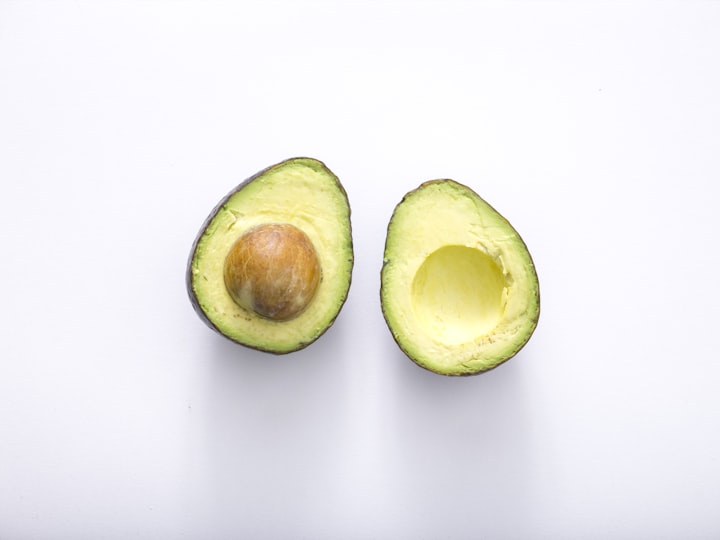Eat Me! The Almost Definitive Guide to Nutrition
To Most Animals, Plants, and Bacteria

An apple a day does not keep the doctor away, but an avocado just may, and some coconut is always welcome. Eaters can be divided into four groups: (1) those that eat and would eat anything, even human meat under extraordinary circumstances; (2) those that eat a selection of meats (various animal parts) and plants (grains, fruits, vegetables, nuts, etc.); (3) those that only eat plants; and (4) those that only eat meats. There is a fifth group that only lives on water and air but is beyond the scope of this text. All groups consume water; perhaps the only fare in common, notwithstanding its cruciality.
Vitamin B₁₂ does not ooze from animals; it is produced by bacteria that happen to live much more numerously in animals than in plants. But then there is nutritional yeast, so B₁₂ is covered. There are more than enough Omega-3s in a tablespoon (tbsp.; 30 g) of hemp seeds, so that is covered too. As for calcium, a tbsp. (9 g) of poppy seeds pack 126 mg of calcium, or 13% of the required daily amount (RDI); a tbsp. (9 g) of sesame seeds have 9% of the RDI; one cup (190 g) of cooked collard greens includes 266 mg of calcium, or 25% of the RDI; a cup of parsley, 8%; a cup of Brussels sprouts, 8%; many others provide lower amounts; and a cup of almond milk (fortified and unsweetened; vanilla is best) bestows 47% of the FDI. Thus, a vegan, better yet, a whole-food plant-based diet, better yet, a vegan ketogenic diet, better yet, a mostly whole-food plant-based diet covers all the necessities of potentially healthy Homo sapiens.
Organic coconut oil, cold-pressed olive oil, and a few other exotic oils (oil is not a whole food) have more advantages than their theorized disadvantages. Animals-based “foods” are not solely required, but may be necessary because of some of their unmatched amino acids. The perceived need for meat and all the other butchered and or squeezed parts of rarely clueless animals blatantly show that many of us simply hate animals to the point of swallowing them raw, bloodied, rare, fried, cooked, and what not, for the so-called good nutrition that they provide. We pride ourselves on being superior to any other animal on Earth, yet we only demonstrate, repeatedly, that we are the worst.
Another issue was (still is) aluminum. Now, it is also copper and slightly iron. Are silver and gold next? Come on! We do not know but hold on to anything possible as if it was the truth. This is not Science; this is fishing for whatever one can catch with various associations, with the absurd ones hidden as if what is presented is any better. No wonder that religion seems to be creeping back. Science is no longer the harbinger of truth. Greed and lack of decency and shame are bringing back tyranny and fascism. Yes! All this from copper, Alzheimer’s, and saturated fat, which, by the way, may not be bad for us, after all. Do your research, but also learn how to do it correctly!
There are very few authorities in the 21st century and almost none of them in medicine or nutrition. For example, two very large studies from Australia and Sri Lanka showed no associations between saturated fats (coconut meat, coconut oil, coconut milk, and coconut butter) and heart disease or cancer, whereas a few very little so-called studies showed some association. I am not part of the coconut lobby, if there is one (there is probably one). I simply love Science because there is so much to love about it. So very much! But these so-called scientists (I mean the physicians that present and or pass themselves as scientists) are reprehensible (some of them are criminals). Greed and or ignorance have surely clouded their boxed brains.
About the Creator
Patrick M. Ohana
A medical writer who reads and writes fiction and some nonfiction, although the latter may appear at times like the former. Most of my pieces (over 2,200) are or will be available on Shakespeare's Shoes.






Comments
There are no comments for this story
Be the first to respond and start the conversation.